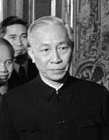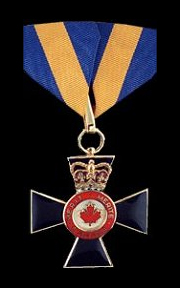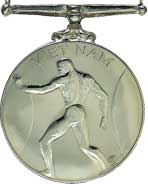
Lê Đức Thọ, born Phan Đình Khải in Nam Dinh Province, was a Vietnamese revolutionary, general, diplomat, and politician. He was the first Vietnamese to be awarded the Nobel Peace Prize, but refused the award.

The Paris Peace Accords, officially titled the Agreement on Ending the War and Restoring Peace in Viet Nam, was a peace treaty signed on January 27, 1973, to establish peace in Vietnam and end the Vietnam War. The treaty included the governments of the Democratic Republic of Vietnam, the Republic of Vietnam, and the United States, as well as the Republic of South Vietnam (PRG) that represented indigenous South Vietnamese revolutionaries. US ground forces up to that point had been sidelined with deteriorating morale and gradually withdrawn to coastal regions, not partaking in offensive operations or much direct combat for the preceding two-year period. The Paris Agreement Treaty would in effect remove all remaining US Forces, including air and naval forces in exchange. Direct U.S. military intervention was ended, and fighting between the three remaining powers temporarily stopped for less than a day. The agreement was not ratified by the United States Senate.

The Republic of Vietnam Campaign Medal, also known as the Vietnam Campaign Medal, is a South Vietnamese military campaign medal which was created in 1949, and awarded to French military personnel during the First Indochina War. During the Vietnam War, the South Vietnamese government awarded the Republic of Vietnam Campaign Medal with Device to members of the South Vietnamese military for wartime service and on March 24, 1966, to members of the U.S. military for support of operations in Vietnam. In May 1966, other allied foreign military personnel became eligible for the award.
A member of the armed forces mentioned in dispatches is one whose name appears in an official report written by a superior officer and sent to the high command, in which his or her gallant or meritorious action in the face of the enemy is described.
The International Commission of Control and Supervision (ICCS) was an international monitoring force created on 27 January 1973. It was formed, following the signing of the Paris Peace Accords, to replace the similarly-named International Commission for Supervision and Control in Vietnam (ICSC), also known as the International Control Commission (ICC).

The Order of Merit of the Police Forces is an honour for merit that is, within the Canadian system of honours, the only such fellowship reserved for only members of Canada's various police forces. Created in 2000, the order is administered by the Governor General-in-Council, on behalf of the Canadian monarch. Appointment to the order recognizes conspicuous merit and exceptional service, the level of which is reflected by the organization's three hierarchical grades.

The Tshumelo Ikatelaho - General Service Medal was instituted by the President of the Republic of South Africa on 16 April 2003 and came into effect on 27 April 2003. It can be awarded to all ranks who have participated in military campaigns or operations which, while not warranting the institution of particular campaign medals, still justify the award of a medal for general service.

The Queen Elizabeth II Golden Jubilee Medal or the Queen's Golden Jubilee Medal was a commemorative medal created in 2002 to mark the fiftieth anniversary of Elizabeth II's accession. The Queen Elizabeth II Golden Jubilee Medal was awarded in Canada to nominees who contributed to public life. The Queen's Golden Jubilee Medal was awarded to active personnel in the British Armed Forces and Emergency Personnel who had completed 5 years of qualifying service.
The Canadian Peacekeeping Service Medal is a campaign medal created in 1988 to recognize the contributions of all Canadian Peacekeepers towards the ultimate goal of peace, after the United Nations Department of Peacekeeping Operations was awarded that year's Nobel Peace Prize.

The Kuwait Liberation Medal is a medal created in 1994 that was issued by the government of Kuwait to both local and foreign military personnel who served in the Persian Gulf War's "Liberation of Kuwait" campaign phase of 1990 and 31 August 1993.

The Queen's Commendation for Bravery and the Queen's Commendation for Bravery in the Air are United Kingdom awards, open to both military personnel and civilians. They were established in 1994, when the award of the Queen's Commendation for Brave Conduct and the Queen's Commendation for Valuable Service in the Air were discontinued.

The Meritorious Service Medal is a decoration that is, within the Canadian system of honours, one of the two Meritorious Service Decorations gifted by the Canadian monarch, through the Governor-in-Council. Created in 1991, the medal is intended to recognize individuals—both Canadian and foreign—who have carried out meritorious acts bringing benefit and honour in either of two categories: military and civilian. Award of the medal grants recipients the ability to use the post-nominal letters MSM.

The Meritorious Service Cross is a decoration that is, within the Canadian system of honours, one of the two Meritorious Service Decorations gifted by the Canadian monarch, his or her Governor-in-Council. Created in 1984, the medal is intended to recognize individuals—both Canadian and foreign—who have carried out meritorious acts bringing benefit and honour in either of two categories: military and civilian.

The Vietnam Logistic and Support Medal was issued to recognise the service of Australian support personnel during the Vietnam War.

The Rhodesia Medal was initiated by the British Government in consultation with Australia, New Zealand, Fiji and Kenya, whose forces took part in Operation AGILA,. The role of the multi-national force was to keep peace between 22,000 guerrilla fighters and the Rhodesian forces during the ceasefire and run-up to the 1980 elections.

The Order of Military Merit is a military honour for merit that is, within the Canadian system of honours, the second highest order administered by the Governor General-in-Council, on behalf of the Canadian monarch.

The Operational Service Medal is a campaign medal created in 2010 by the Canadian monarch-in-Council to recognize members of the Canadian Forces, allied forces, Canadian police officers, or Canadian civilians working for the Canadian Forces who had directly participated in any military campaign under Canadian or allied command. It is, within the Canadian system of honours, the lowest of the war and operational service medals.
The Special Service Medal is a service medal awarded to members of the Canadian Forces. The medal was established by letters patent by Queen Elizabeth II on 16 June 1984. Recipients of this medal must have performed, "service under exceptional circumstances". The medal is always issued with a bar which specifies the special service which the medal recognizes. Each bar has its own criteria.
The General Service Medal (GSM) is a service medal of Canada established by Her Majesty The Queen in March 2004 and presented for the first time on 29 November 2004. It is presented to members of the Canadian Forces, or members of allied forces for deployment outside of Canada with Canadian Forces, though not necessarily in a theater of operations, to provide direct support, on a full-time basis, to operations in the presence of an armed enemy.
The International Commission for Supervision and Control Medal is an international service medal awarded to personnel from the three countries that made up the International Commission for Supervision and Control (ICSC). The ICSC was born from the Geneva Agreements of 1954 which ended the First Indochina War. The medal was awarded for 90 days cumulative service with the ICSC between 1954 and 1974.















